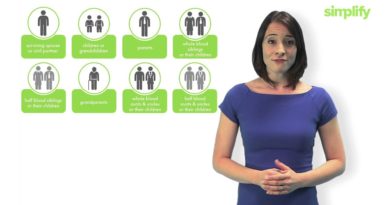10 Common Estate Planning Myths
2023-02-17
Posted at 14:20h
in Asset Protection, Estate Planning
Have you started working on your estate plan yet? There are many common myths and misconceptions about estate planning that can cause people to make mistakes with their plans, or prevent them from making one at all. If you’ve heard and believed any of these myths, it’s time to reconsider your ideas about estate planning.
Ten Common Estate Planning Myths
Myth #1: I’m Too Young to Make an Estate Plan
Many people assume that they don’t need to worry about estate planning because they are young and healthy. But you’re never too young (or too old) for estate planning, and it’s better to get started sooner rather than later. Tragedy can strike at any moment, and you don’t want to be caught unprepared.
Even if you are unmarried or don’t have significant assets like a house to leave behind, you still need an estate plan. Making arrangements for your bank accounts, retirement accounts, pets, vehicles, collectibles, and anything else you value will ensure they end up in the right hands.
Myth #2: An Estate Plan Only Matters After Your Death
You might already have a will or trust in place that covers what happens to your assets after you die. But did you know that your estate plan can also help you during your lifetime? Death isn’t the only event that can put your assets in jeopardy—an accident or illness could leave you in a coma or otherwise incapacitated.
It’s a good idea to designate a power of attorney who will make medical or financial decisions on your behalf if you are ever unable. You can also write a living will that explains your wishes about certain medical procedures, such as being placed on life support.
Myth #3: Estate Planning Is Only for the Wealthy
Estate planning is for everyone, no matter how wealthy they are. You need an estate plan whether your assets are large or small, you’re married or single, have children or not—because estate planning isn’t just about protecting your money.
For example, you can plan for the possibility of becoming disabled by creating an advance directive. You can even leave money and detailed instructions for your pet’s care through a pet trust. And with your will, you can lay out your wishes when it comes to burial vs. cremation, who gets which assets, and who will take care of your children.
Myth #4: My Estate Avoids Taxes
If your estate is worth more than $12.92 million in 2023, it will be subject to the federal estate tax. Many people don’t realize how big their estate actually is, and mistakenly assume it won’t be taxed. But the value of your real estate, retirement accounts, life insurance policy, bank accounts, and personal possessions can add up quickly.
You can reduce the size of your taxable estate with strategic planning. For example, you can give gifts of money to your loved ones, or make donations to your favorite non profit organizations through a charitable lead trust or charitable remainder trust.
Myth #5: My Family Already Knows My Wishes
You should never assume that your loved ones know exactly what you want when it comes to distributing your assets. Failing to leave clear instructions in a will or trust can lead to confusion and family disputes over inheritances. The best way to give your family peace of mind is by creating a thorough estate plan.
You also need to consider your healthcare wishes—just because your family knows what they are, doesn’t mean they agree with them. Assigning a medical power of attorney guarantees that your wishes will be respected.
Myth #6: My Assets Go to the State If I Pass Away Without a Will
Some people don’t create a will because they’re fine with the idea of their assets going to the state. But that’s not actually what happens. When you die without a will or “die intestate,” then the state actually distributes your assets according to the laws of intestate succession.
In Arizona, the order of inheritance is as follows:
- Spouse (if your children belong to your spouse)
- Children (if you don’t have a surviving spouse)
- Spouse and children (if your children don’t belong to your spouse)
- Parents (if you don’t have surviving spouse or children)
- Siblings (if you don’t have surviving spouse, children, or parents)
An estate plan gives you control over who will inherit your assets. If you don’t have heirs that you know of, or don’t wish to leave anything to family members, you can always dictate in your will or trust that you wish to leave your assets to the state or to a charity.
Myth #7: My Spouse Will Inherit Everything
Another thing you should never assume is that your spouse automatically inherits everything. Arizona is a community property state, which means your surviving spouse is only entitled to half of your shared property. If you don’t have a will, the other half will be distributed according to the laws of intestate succession. If you want your spouse to inherit everything, then you need to explain your wishes in a will or trust.
Myth #8: A Will Is Enough to Avoid Probate
Probate is the court process of distributing your assets according to your will or by intestate succession—it can take a long time and be expensive. Some people assume that having a will is enough for their assets to avoid probate. However, because wills must be validated by the probate court, they cannot avoid the process. In order to avoid probate, you’ll need to place all of your assets into a trust.
Myth #9: A Living Trust Protects My Assets from Creditors
There are many benefits of creating a revocable living trust. The main advantage is that you can continue to add or remove assets and access them throughout your lifetime. But one thing a trust doesn’t do is protect your assets from creditors.
The assets in a living trust are still your property, so they are still vulnerable in a lawsuit. If you’re worried about losing your assets to creditors, you can place them in an irrevocable trust. You won’t be able to remove or control the assets in the trust, but they will be protected from lawsuits.
Myth #10: I Don’t Need a Lawyer for Estate Planning
Even if you think that all you need is a will, you should never attempt making a DIY estate plan. It’s all too easy to make mistakes that can render documents invalid, cause confusion, or go against your wishes. It’s important to consult an experienced estate planning attorney to ensure that your estate plan will successfully protect your assets, follow state laws, and include everyone you care about.
Estate Planning Attorney in Arizona
The compassionate team at Phelps LaClair is dedicated to making sure your assets end up in the right hands at the right time. We’ll help you design an estate plan that covers all of your wishes. We’ve been providing professional estate planning services in Arizona for over 40 years. Give us a call at 480-892-2488 today to schedule a free consultation.
Images used under creative commons license – commercial use (2/17/2023). Photo by Annika Wischnewsky on Unsplash






